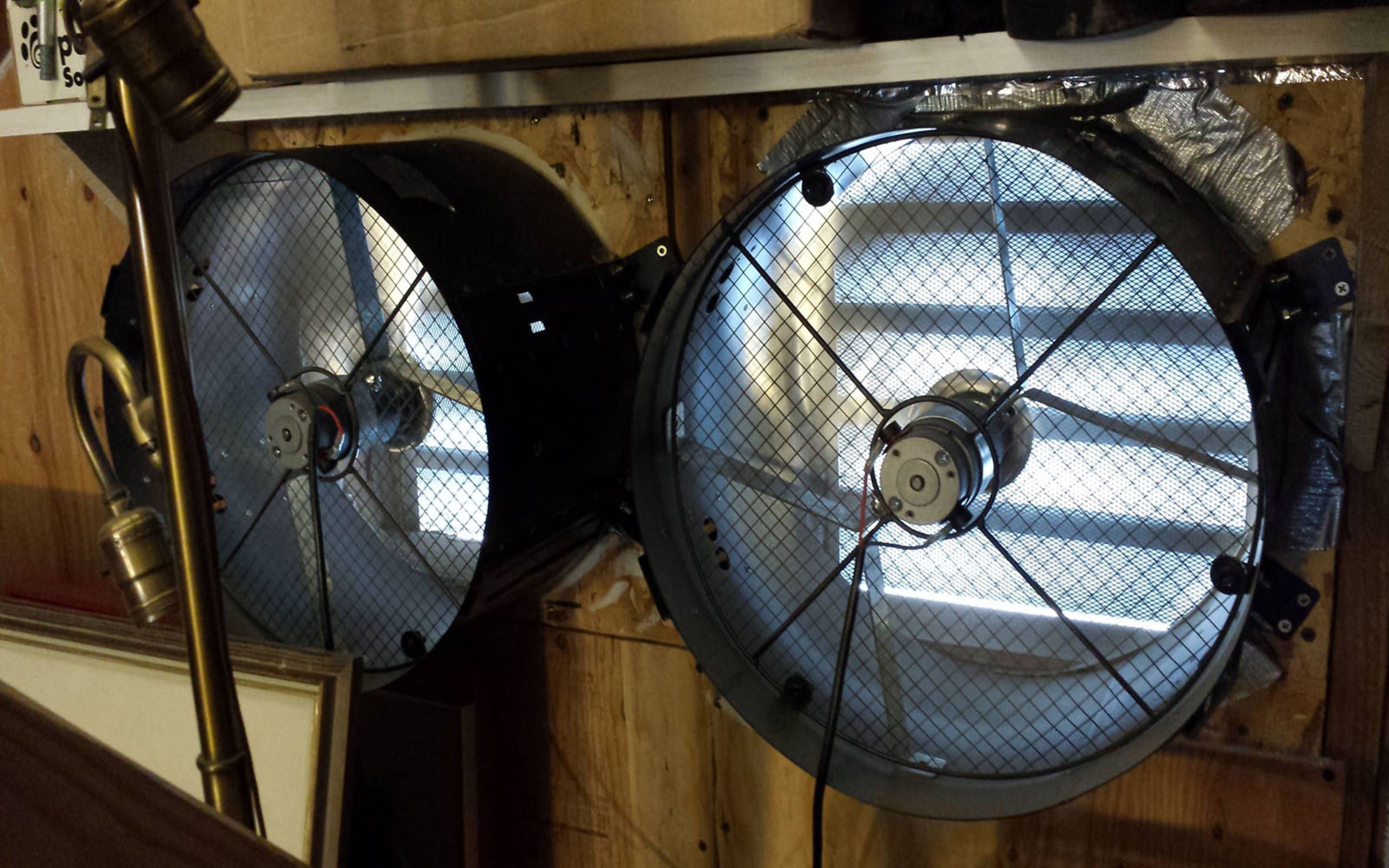They are typically easier to install and won t detract from the appearance of your roof.
Detached attic exhaust vent.
In other words the entire vent opening doesn t count as vented space.
Wide and is made of western red cedar.
That said air resistance and interference such as vent grates reduces the area of true ventilation.
Federal housing authority recommends a minimum of at least 1 square foot of attic ventilation evenly split between intake and exhaust for every 300 square feet of attic floor space.
If two different types of exhaust vents are combined for example a ridge vent and a gable louver the primary path of air becomes the distance between the two types of exhaust vents.
Effective attic ventilation systems reduce damaging heat and moisture in your attic promote energy efficiency by helping to reduce the load on your air conditioner in the summer and also reduce the risk of ice dam formation on your roof.
Hot air exhaust vents located at the peak of the roof allow hot air to escape.
Provide ventilation for your chosen location with the provide ventilation for your chosen location with the al s millworks 16 in.
The egv6 power gable mount vent can move air at a rate of up to 1600 cu.
The keepa attic vent is built exclusively for flat roof ventilation roof pitch is 2 12 or less.
See the benefits of attic ventilation a new roof is more than just shingles.
The keepa attic vent is used for ventilating attics and or plenum as a roof exhaust vent or as an air intake roof vent.
That path is supposed to be from low in the attic intake vents to the highest possible exit point in the attic exhaust vents.
Generally speaking you need a ratio of 1 300 where for every 300 square feet of ceiling space you need 1 square foot of attic ventilation.
It alleviates moisture in the winter and heat in the summer to extend roof membrane life.
They can quickly remove a larger volume of hot and or humid air from your attic compared to static ventilation which helps save money on your heating and cooling costs.
For this method to be most effective approximately equal amounts of ventilation should be placed at the soffits or eave level and at or near the top of the attic space.
Once inside the air heats up and rises higher ultimately exiting through venting at the roof s gables through ridge vents cut into the roof s apex or other vent holes in the roof.
Most homes already have some passive attic venting built in.
Outside air enters the attic space through soffit or eave vents rises through the attic space as it warms and exits through vents that are positioned at or near the top.
More product details close.
Cool air enters the attic through soffit vents in the eaves.
Proper attic ventilation consists of a balance between air intake at your eaves soffits or fascias and air exhaust at or near your roof ridge.

